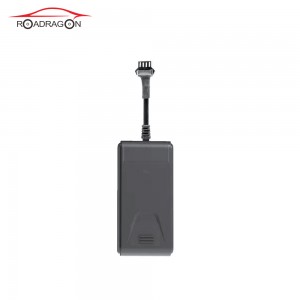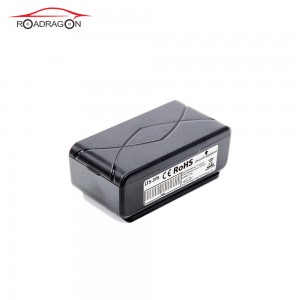2G MT-009 wired GPS tracker
- Network: 2G
- Protocol: H02 or JT808
4G MT-009 wired GPS tracker
- Network: 4G CAT1 & 2G (suitable for South Asia & Africa )
4G MT-009 wired GPS tracker
- Network: 4G CAT1 & 2G (suitable for South America and Europe )

- Support GPS/Beidou, AGPS, base station and other positioning functions, accurate positioning;
- The device supports 4G and 2G networks in most regions of the world, which can meet the needs of almost all regions of the world and cross-regional use. 4G network supports TDD LTE/FDD LTE, 2G network supports GSM/GPRS.
- The host has a built-in high-sensitivity G-sensor acceleration sensor.
- The host has a built-in photosensitive sensor.
- Equipped with basic functions such as intelligent self-check, intelligent sleep, remote oil and power off, remote wireless upgrade intelligent function and alarm function.
- DC 9~100V ultra-wide voltage input range, suitable for positioning monitoring of automobiles, electric motorcycles and other vehicles.
- Products with similar performance specifications, the smallest volume, easy to conceal installation.
Machine parameters
|
Product Features |
specific description |
|
Operating Voltage |
DC 9V~100V |
|
Working current |
Average current <40mA (DC12V),maximum current <120mA (DC12V) |
|
Built-in battery |
90mAH,3.6V,Lithium polymer battery |
|
battery protection |
Anti-200V power supply reverse connection; main power voltage detection; |
|
Terminal volume |
70mm*40mm*13mm(L*W*H) |
|
Terminal weight |
47±5g |
|
Operating temperature |
-20℃~70℃ |
|
storage temperature |
-40℃~85℃ |
|
Relative humidity |
5%~95% |
|
Communication module |
SIMCOM A7670C / A7670C/ A7670 SA A7670C: LTE-FDD B1/B3/B5/B8 LTE-TDD B34/B38/B39/B40/B41 GSM 900/1800MHz A7670E: LTE-FDD B1/B3/B5/B7/B8/B20 GSM 900/1800MHz A7670SA: LTE-FDD B1/B2/B3/B4/B5/B7/B8/B28/B66 |
|
GNSS module |
GPS L1:1575.42MHz BD B1: 1561.098MHz |
1 Positioning monitoring function
1.1 Regular monitoring
The vehicle satellite terminal can set a certain moment or a certain time period or at a certain time interval, and send the vehicle's position and status information to the monitoring center.
1.2 Blind spot compensation
When the terminal enters the GPRS/LTE blind area, the trajectory data will be saved at the shortest time interval of 30S, and the blind area data will be uploaded to the platform when the communication module is online again. Up to 4000 pieces of blind spot compensation data can be saved.
1.3 corner compensation
When the vehicle enters the curve, the terminal detects that there is a certain angular deviation in the driving direction (default 20 degrees), and will add a regular return message to ensure that the driving trajectory is more accurate.
1.4 Base station positioning
The terminal uses satellite positioning by default. When it enters the satellite signal blind area and cannot be accurately positioned, the terminal automatically switches to base station positioning. The terminal obtains base station information every 30S, uploads the base station information, and the specific location is analyzed by the server.
1.5 A-GPS
The terminal has the A-GPS function. When the terminal is connected to GPRS, the AGPS function can be used to speed up the positioning speed of the satellite positioning module and improve the positioning accuracy.。
2 Alarm function
2.1 Low pressure alarm
When the battery voltage on the vehicle is too low (0-11V or 19-22V), the vehicle terminal will report a low voltage alarm to the monitoring center.
2.2 Overspeed alarm, low speed alarm
When the vehicle speed is higher than the overspeed alarm value, the vehicle terminal will notify the monitoring center. Similarly, when the vehicle speed is lower than the low-speed alarm value, a low-speed alarm will be reported to the monitoring center. The alarm value can be set.
2.3 Vibration alarm
The device turns on the vibration alarm function. After the device is turned off for more than 10 minutes (the fortification range: 1~20 minutes), the device vibrates and within 3 minutes (the delay range can be set: 1~10 minutes), the device will report the vibration alarm information.
2.4 Displacement alarm
When the device setting displacement exceeds 100 meters, an alarm (SMS prompt) will be generated, and the alarm information will be reported when the displacement radius exceeds 100 meters when the device is turned off. (Note: the displacement range is 100~2000m).
2.5 Positioning module abnormal alarm
When the host detects that the GPS/BD satellite module is working abnormally, it will report the satellite receiver fault alarm to the monitoring center.
2.6 Main power failure alarm
When the main battery of the vehicle is damaged or cannot supply power, the built-in backup power supply can keep the system working and send a power failure alarm to the monitoring center.
2.7 Disassembly alarm
The device has a built-in photosensitive sensor, which can detect changes in the ambient light of the device. When abnormal exposure is detected, the device will automatically generate disassembly alarm information and report it to the monitoring center in real time.
3 Smart function
3.1 Smart sleep
The host has a built-in high-sensitivity G-sensor acceleration sensor, which can monitor whether the vehicle is moving in real time. When no motion is detected for a long time, the host automatically enters a power-saving state, closes the GPS/BD module, and at the same time GSM enters the heartbeat return state. In this state, the power consumption of the device is extremely low, which can greatly reduce the impact on the vehicle battery loss.
3.2 Intelligent self-test
The vehicle-mounted terminal can perform self-diagnosis. Once a fault occurs, it will send a fault notification to the center, such as satellite positioning module, GSM module, etc., and can automatically take relevant measures. The monitoring center can also query the current model, version, configuration, running status, and device function of the terminal.
3.3 Tamper detection
The vehicle terminal can automatically identify the disassembly state through the light sensor and power detection module. And report the disassembly data to the platform in real time.
3.4 Static drift suppression
The host has a built-in high-sensitivity G-sensor acceleration sensor and a complete set of positioning data filtering algorithms, which can filter out most of the static drift data and ensure the accuracy of satellite positioning data.
3.5 Mileage Statistics
The vehicle mileage data is sent back to the monitoring center together with the vehicle positioning data; the initial mileage can be set when the vehicle is installed。
3.6 Remote settings
Remotely set various parameters of the terminal through the central system, including IP, center number, various monitoring parameters, etc.
3.7 Remote upgrade
As long as the GPRS status is available, the terminal software can be upgraded by remote wireless mode.
3.8 Dual IP or dual domain name
The terminal supports dual IP connection between the main server and the standby server, and the default connection is to the main server. If there is a problem with the main server, it will automatically switch to the standby server. The primary server and backup server can be set in two ways: IP or domain name.
3.9 Ministry standard agreement version
The terminal can choose the JTT808 partial standard protocol when it leaves the factory, which is suitable for all platforms that support the partial standard protocol.








